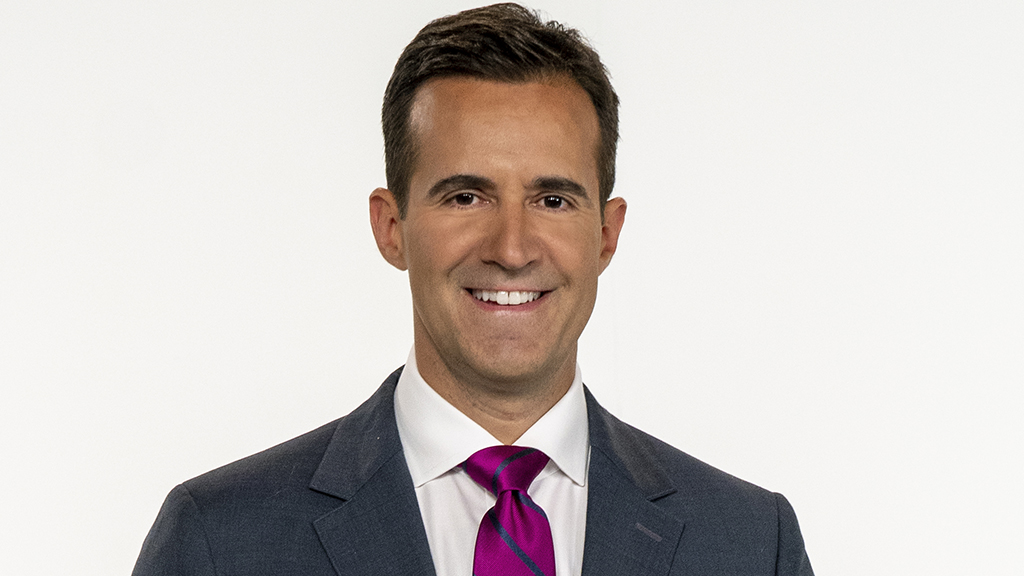Why is Massachusetts considered a "sanctuary state" by some, when Gov. Healey says it's not?
Massachusetts is home to eight sanctuary cities. They have a combined population of one million. Boston is the largest of the sanctuary cities.
But at a time when sanctuary cities and states are getting hammered by the Trump administration, Governor Maura Healey has made it a point to say Massachusetts is not a "sanctuary state."
Governor Healey told WBZ's John Keller in December: "We are not a sanctuary state."
In January she said, "We follow the rules. We are not a sanctuary state."
Last week, and then again Wednesday, Healey told reporters the same exact thing: "Massachusetts is not a sanctuary state."
What is a sanctuary state?
Is she right? Well, we asked the governor "What is your definition of a sanctuary state?"
Healey responded, "I would leave that to others who call themselves that to define, but Massachusetts isn't and as I say we continue to work regularly local, state and federal law enforcement when it comes to public safety."
In reality, there is no universally agreed upon definition of a "sanctuary state." You won't find the specific term in any Massachusetts laws. But, in many news stories, from The New York Times to Fox News, you will find Massachusetts listed as a sanctuary state with a dozen or so other states.
The Center for Immigration Studies lists Massachusetts as sanctuary state along with California, Colorado, Connecticut, Illinois, New Jersey, New York, North Dakota, Oregon, Rhode Island, Utah, Vermont and Washington. That list is often used as a source in news articles on this topic.
So, why is Massachusetts considered a sanctuary state by some, especially when the others say it's not?
Well, it's rare for a state to declare itself as a sanctuary, though Oregon declared it in 1987, and California's Governor has said his state is a sanctuary state in social media posts. Instead, it's more about a few particular laws and policies that these states have in common.
Most states given the "sanctuary" distinction have rules limiting how local and state law enforcement interact with Immigration and Customs Enforcement- or ICE. Most of these states have rules prohibiting state authorities for arresting people solely on their immigration status and - this is an important one, limit how sheriff departments treat detainer requests from ICE.
Massachusetts law on ICE detainers
In 2017, the Massachusetts Supreme Judicial Court ruled in a case called Lunn v. Commonwealth that, "Massachusetts law provides no authority for Massachusetts court officers to arrest and hold an individual solely on the basis of a Federal civil immigration detainer, beyond the time that the individual would otherwise be entitled to be released from State custody."
That means sheriff's departments are unable to hold someone after they post bail, even if they are wanted by ICE.
WBZ's Louisa Moller recently spotlighted how sheriffs who want to cooperate with ICE say their hands are tied.
"It's very frustrating for me to know I might have a drug trafficker or a violent offender getting bailed out of here. I call ICE and they're like, we're very busy with a couple situations, we can't get there for a few hours. I can't hold them right now," said Worcester County Sheriff Lewis Evangelidis.
We asked Republican State Senator Peter Durant of Worcester, a vocal critic of some of Governor Healey's immigration policies, if he considers Massachusetts a sanctuary state. Durant told us, "If it looks like a duck, walks like a duck and quacks like a duck, then it just may be a duck, and Massachusetts certainly looks and acts like a sanctuary state."
Still, Governor Healey holds firm saying, "Massachusetts is a state that works with federal law enforcement in investigating and prosecuting crime and criminals. It's been the case it will continue to be the case. Our Department of Corrections, for example, regularly contacts ICE when we have an inmate who has an immigration detainer out there. We work with ICE on making sure that person is transferred to ICE. So that's the way it has worked. That's the way it will continue to work. We are not a sanctuary."
If you have a question you'd like us to look into, please email questioneverything@cbsboston.com.





